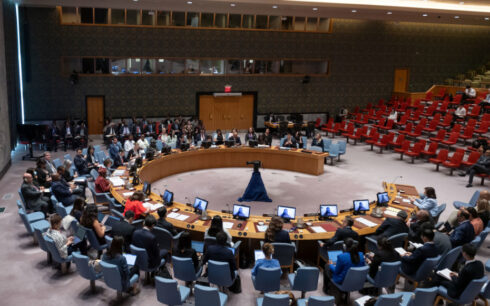KABUL — Amir Khan Muttaqi, the Taliban’s acting foreign minister, is expected to participate in a trilateral meeting with his Chinese and Pakistani counterparts in Beijing on Tuesday, according to a source from the Taliban-run Foreign Ministry.
The trip follows a May 16 decision by the United Nations Security Council committee overseeing sanctions under Resolution 1988 to grant Muttaqi a travel exemption, allowing him to visit Beijing and Chengdu from May 19 to 26. The stated purpose of the exemption is to attend the 20th Western China International Fair. His participation in the high-level diplomatic talks falls within the same travel window.
While Taliban have not officially confirmed his attendance, multiple sources—including a senior official in Islamabad—said Pakistan is actively working to facilitate the meeting. The talks are expected to focus on regional security and cooperation, particularly amid heightened tensions between Pakistan and India.
Pakistan’s Foreign Ministry confirmed Monday that Foreign Minister Ishaq Dar had arrived in China for discussions with senior Chinese leaders, including Foreign Minister Wang Yi and key officials from the Chinese Communist Party. In a statement, the ministry said the meetings would focus on “current regional developments and all aspects of the Pakistan-China relationship.”
Pakistan’s special envoy for Afghanistan, Mohammad Sadiq, also announced his travel to Beijing, posting a message on X (formerly Twitter) from Nur Khan Air Base in Rawalpindi: “Flying to Beijing.”
According to reporting by Pakistan’s Dawn newspaper, the trilateral talks will include representatives from Pakistan, China and the Taliban, and are expected to focus on regional peace and security in the wake of recent military tensions between Islamabad and New Delhi.
Muttaqi last held a similar trilateral session with Pakistani and Chinese envoys in Kabul on May 9. More recently, on Sunday, the Chinese ambassador met with the deputy prime minister in the Taliban administration, signaling sustained diplomatic engagement between Beijing and Kabul.
The upcoming talks are set against a backdrop of growing mistrust between Islamabad and Kabul. Pakistani officials have repeatedly blamed cross-border militancy on the Taliban’s failure to rein in armed groups operating from Afghan territory. At the same time, some analysts say Islamabad is concerned about growing Indian influence in Afghanistan amid renewed tensions with New Delhi.
China, for its part, is also seeking a more active role in Afghan affairs, driven by both regional competition and broader geopolitical interests, including its rivalry with India and Russia.





